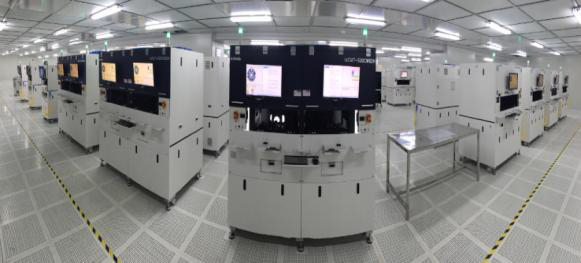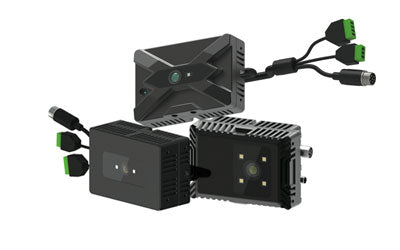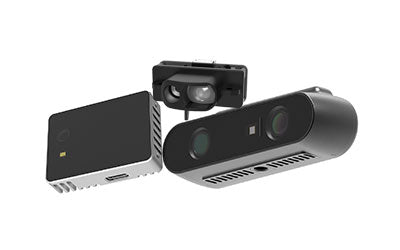Comment choisir le bon capteur TOF pour votre projet ou application

Les capteurs de temps de vol (TOF) gagnent en popularité dans diverses industries, notamment l’automobile, la robotique et l’électronique grand public. Ces capteurs utilisent des ondes lumineuses pour mesurer la distance entre le capteur et un objet, ce qui les rend idéaux pour des applications nécessitant des mesures précises et rapides. Cependant, avec autant de capteurs TOF disponibles sur le marché, choisir le bon pour votre projet ou application peut être difficile. Dans cet article, nous vous donnerons quelques conseils pour choisir le capteur TOF adapté à votre projet ou application.

-
Considérez la Portée de Mesure
L’un des facteurs les plus importants à prendre en compte lors du choix d’un capteur TOF est la portée de mesure. Les capteurs TOF ont généralement une portée de quelques centimètres à plusieurs mètres. Si vous devez mesurer des objets éloignés, vous aurez besoin d’un capteur avec une longue portée de mesure. En revanche, si vous n’avez besoin de mesurer que des objets proches, un capteur avec une courte portée de mesure suffira. Assurez-vous de choisir un capteur avec une portée de mesure adaptée à votre application.
Examinez la Résolution du Capteur
Un autre facteur important à considérer est la résolution du capteur. La résolution du capteur fait référence à la plus petite distance que le capteur peut mesurer avec précision. Si vous avez besoin de mesures très précises, vous aurez besoin d’un capteur avec une haute résolution. Cependant, gardez à l’esprit que les capteurs avec des résolutions plus élevées sont généralement plus chers.
Déterminez la Vitesse de Mesure Nécessaire
La vitesse de mesure est une autre considération importante lors du choix d’un capteur TOF. Si vous devez mesurer des objets rapidement, vous aurez besoin d’un capteur avec une vitesse de mesure élevée. Cependant, gardez à l’esprit que les capteurs avec des vitesses de mesure plus élevées sont généralement plus coûteux. Si vous n’avez pas besoin de mesurer des objets rapidement, vous pouvez économiser de l’argent en choisissant un capteur avec une vitesse de mesure plus lente.
Considérez les Conditions Environnementales
Les capteurs TOF peuvent être affectés par des conditions environnementales telles que la température, l’humidité et la lumière ambiante. Si vous allez utiliser le capteur dans des conditions environnementales difficiles, vous aurez besoin d’un capteur conçu pour résister à ces conditions. Assurez-vous de choisir un capteur qui soit adapté aux conditions environnementales dans lesquelles il sera utilisé.
Examinez l’Interface du Capteur
Les capteurs TOF disposent généralement d’une interface numérique telle que I2C ou SPI. Assurez-vous que le capteur que vous choisissez dispose d’une interface compatible avec votre microcontrôleur ou processeur.
Vérifiez la Consommation d'Énergie du Capteur
Enfin, tenez compte de la consommation d’énergie du capteur. Si vous concevez un appareil alimenté par batterie, vous aurez besoin d’un capteur avec une faible consommation d’énergie pour maximiser la durée de vie de la batterie. Assurez-vous de choisir un capteur avec une consommation d’énergie adaptée à votre application.

Conclusion
Choisir le bon capteur TOF pour votre projet ou application nécessite une attention particulière à plusieurs facteurs, notamment la portée de mesure, la résolution du capteur, la vitesse de mesure, les conditions environnementales, l'interface du capteur et la consommation d'énergie. En tenant compte de ces facteurs, vous pourrez choisir un capteur TOF qui répondra aux exigences de votre projet ou application.
Produits applicables : CS20, CS30, CS20-P, CS40, CS40p
Support Après-Vente :
Notre équipe technique professionnelle, spécialisée dans la portée des caméras 3D, est prête à vous assister à tout moment. Que vous rencontriez des problèmes avec votre caméra TOF après l'achat ou que vous ayez besoin de clarifications sur la technologie TOF, n'hésitez pas à nous contacter à tout moment. Nous nous engageons à fournir un service après-vente technique de haute qualité et une excellente expérience utilisateur, vous garantissant ainsi tranquillité d'esprit tant pour l'achat que pour l'utilisation de nos produits.
-
Publié dans
Tof sensor



